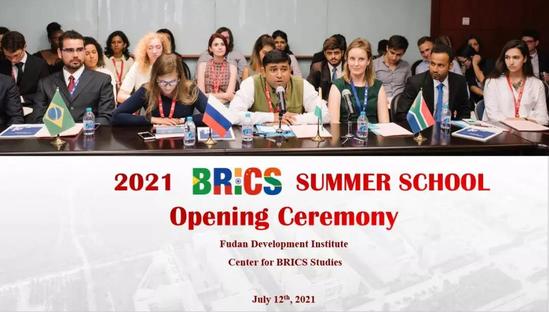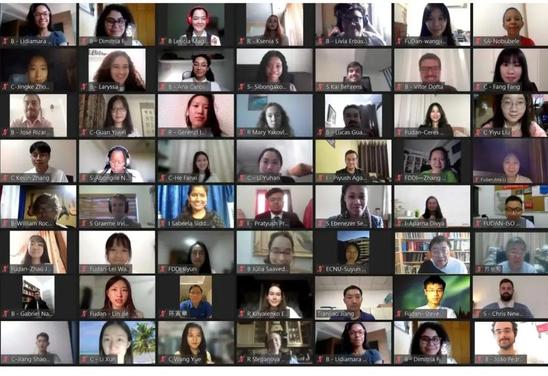Author:Li Yijie Release date:2021-07-22 09:41:13Source: Fudan University
On the evening of July 12, the 2021 BRICS Summer School kicked off with an online opening ceremony.

Due to the continuing impact of COVID-19 on a global scale, the BRICS Summer School 2021 is being held online with the theme “BRICS Cooperation and Global Governance under the challenge of the COVID-19”.
The Summer School covers up-to-date topics such as digital economy and knowledge sharing, energy transition, sustainable development, sovereign debt governance and the New Development Bank. All courses in the Program are taught in English.
The students are grouped into five teams based on their interests to focus their research on the following areas: non-traditional security cooperation, economic cooperation and sustainable development, education and cultural communication, BRICS participation in global governance, and BRICS countries cooperation under the challenge of the COVID-19.

With the application by students themselves and recommendation of partner universities, 39 students have been selected to this year’s BRICS Summer School, including 13 students from Brazil, 5 students from Russia, 4 students from India, 7 students from South Africa and 10 students from China. These students have diverse education backgrounds, majoring in international politics, global governance, environmental law, sustainable development, social sciences, foreign languages and linguistics.
The BRICS Summer School, set up by Shanghai Municipal Education Commission, hosted by the Center for BRICS Studies, Fudan Development Institute and directed by Shanghai Municipal Education Commission and International Students Office of Fudan University, has been held for 8 consecutive years.
It aims to build a platform of friendship and consensus for young students from BRICS countries. This program provides the young generation of BRICS countries with a chance to have a better understanding of China’s social-cultural, political and economic development, BRICS cooperation and changes in global governance, promoting mutual communication and consolidating the popular foundation for BRICS cooperation.